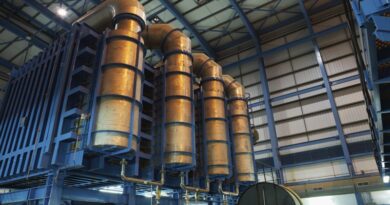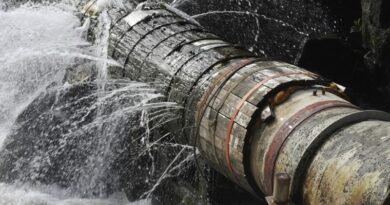‘Covid-19 shakes up social infrastructure investment outlook globally’

Notwithstanding the fact that water is a critical input in the global fight against Covid-19, a new survey conducted by US-based CG/LA Infrastructure has found that global industry leaders are not hopeful about an increase in infrastructure spending following the worldwide spread of the pandemic.
Water projects – related to supply of clean, drinking water and wastewater treatment – have been identified as a top priority among social infrastructure projects by private and public sector entities from around the world, but just five per cent of the survey’s respondents that investment will “increase significantly” following the pandemic, a sharp decline from 34 per cent before the crisis.
In total, only 27 per cent believe that infrastructure investment would increase or increase significantly – a drop from 71 per cent, when asked previously.
The Global Infrastructure Industry Survey was conducted by CG/LA Infrastructure from March 19 to 30 and received over 13,000 responses from various sectors including engineering & construction, finance, public owners of infrastructure and technology fields from over 30 countries.
CG/LA Infrastructure is based in Washington, D.C., and focuses on infrastructure project development globally.
Worryingly, the survey found that global private and public sector leaders are not confident about an increase in infrastructure spending following the worldwide spread of COVID-19, but remain pessimistic about a post-virus economic recovery.
“The data shows that the outbreak of Covid-19 cases worldwide has essentially put a halt to infrastructure investment globally, putting the likelihood of essential projects such as the development of new hospitals, schools and irrigation systems into doubt,” said CG/LA Infrastructure chairman and CEO Norman Anderson.
“It’s clear that more has to be done – whether it is building more hospitals or schools, or other key projects delivering high quality benefits such as clean water and irrigation systems – particularly in developing countries. Given that infrastructure needs to be a driver of the global economic recovery, obviously these results are deeply troubling.”
A critical theme emerging from the survey is that 82 per cent of respondents view infrastructure as a weak or average brand. Just 18 per cent identified infrastructure as a strong brand – the vast majority saw it as problematic or characterized by incompetence and, especially, chronic corruption.
“There is a need for a robust infrastructure commitment as part of any serious economic recovery. Now is the time for leadership, an investment model that will allow local economies to recover, and real attention to the benefits that infrastructure brings to people — not just jobs, but health, and a sense of confidence in the future,” said Anderson.
“What I am trying to do is use our platform so that people around the world have a voice in terms of what they need in infrastructure investment.”
According to the survey, prior to the crisis only 10 per cent of respondents thought that infrastructure investment would decrease (seven per cent), or decrease significantly (three per cent), but now a majority (52 per cent) believes that infrastructure investment will decline (34 per cent) or decline significantly (18 per cent).
Overall, the survey found there was lack of public trust in the infrastructure brand, while respondents believed that there was an urgent need to address emerging markets infrastructure too.
Also, 28 per cent of the respondents selected social infrastructure (new hospitals, and schools) as their top priority, with 55 per cent listing it as one of their top three priorities. Clean water was highlighted as the top priority by 14 per cent and was included in a top three priority by 48 per cent of respondents. Transit and highways (12 per cent) and wastewater (11 per cent) were other top areas cited as in need of investment.
“As fears around the extent of the global recession increase, it is important that the U.S. government and multilateral institutions understand the depth of this problem,” said Anderson.
“Given this acute crisis, now is the time for leadership, an investment model that will allow local economies to recover, and real attention to the benefits that infrastructure brings to people – not just jobs, but health, and a sense of confidence in the future.”



